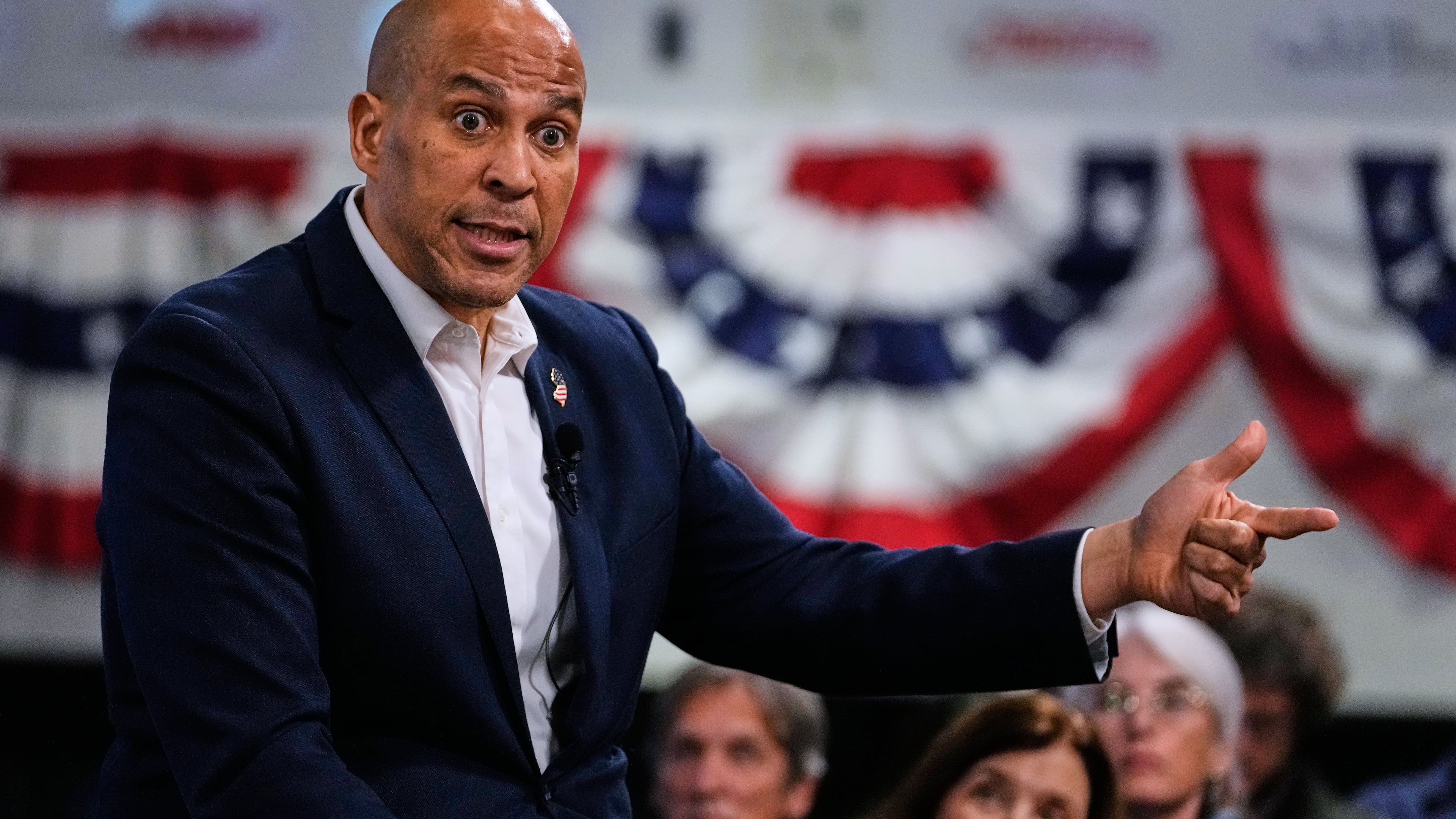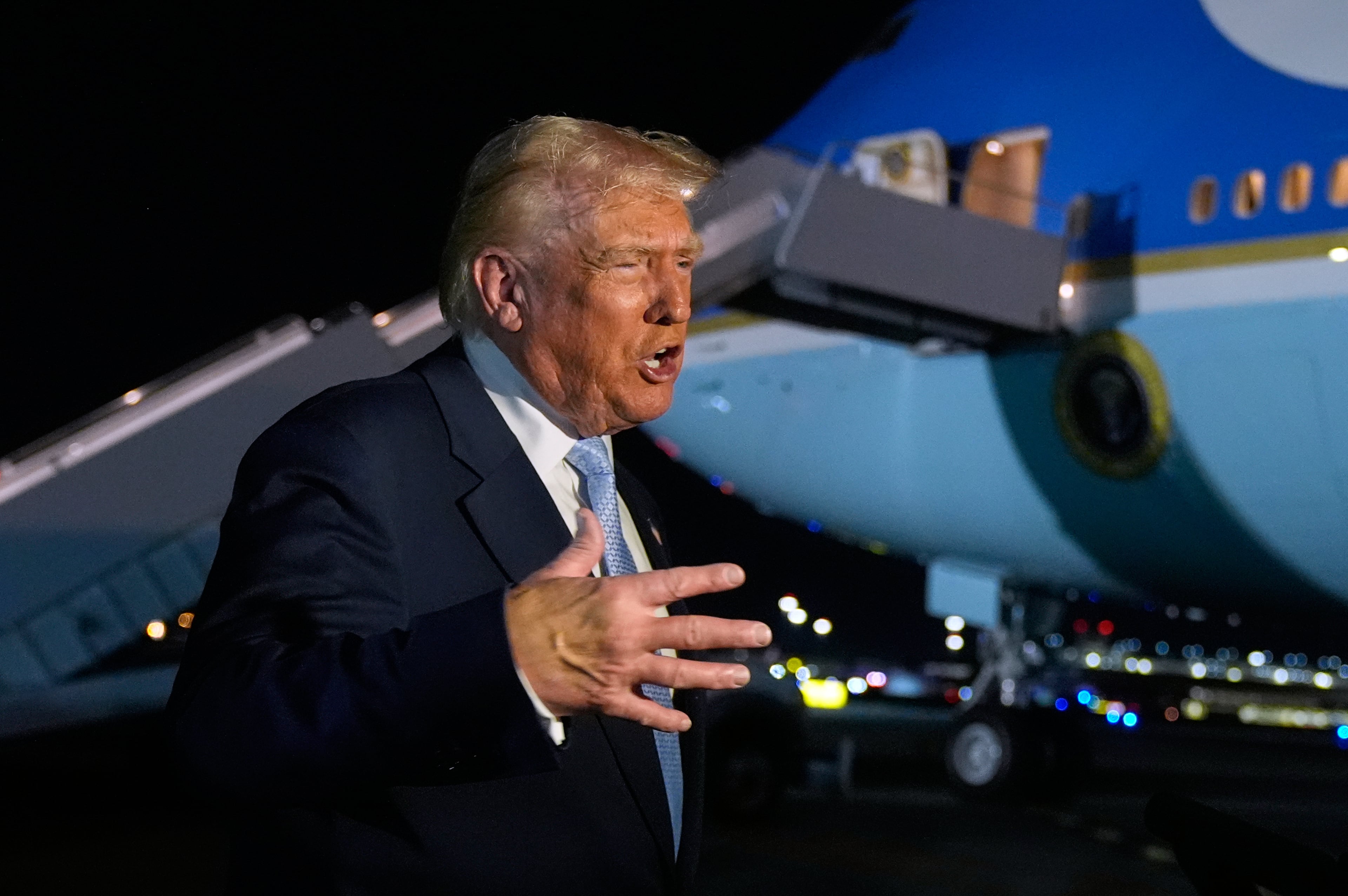Potential presidential candidates are less coy about 2028 plans: 'Of course I’m thinking about it'

NEW YORK (AP) — There was a time when presidential hopefuls played coy about their ambitions, crisscrossing the country under the guise of helping other candidates and deflecting when pushed on their obvious plans.
Not so for some Democrats considering running in 2028. With no clear party leader and Democratic voters raring for a fight, some could-be candidates are being far more transparent about their intentions, doing away with pretensions as they try to gain maximum visibility at a time when authenticity is in high demand.
“Of course I’m thinking about it. I haven’t ruled it out,” New Jersey Sen. Cory Booker recently told Fox News during a trip to early-voting New Hampshire, even as he stressed that his focus is on 2026, when he will be up for reelection.
“I’d be lying otherwise. I’d just be lying and I can’t do that,” California Gov. Gavin Newsom told CBS when pressed on whether he will consider a run after the midterms next year.
To be sure, many Democrats remain circumspect.
Of the dozen potential 2028 candidates The Associated Press requested interviews with to discuss the changing dynamic, none was immediately available. Some Democrats deflect questions and say their attention is elsewhere even as they campaign for others in early-voting states.
On the Republican side, an entirely different dynamic is brewing under the surface. Potential candidates are keeping low profiles amid expectations that President Donald Trump will play kingmaker in choosing his would-be successor.
Presidential campaign strategists say the Democrats' less guarded approach makes sense given the wide-open 2028 field and sheer number of candidates competing for attention. Among the others who have said they are considering a run: Kentucky Gov. Andy Beshear, former Chicago Mayor Rahm Emanuel, who also was a White House chief of staff, and Hawaii Gov. Josh Green.
“Old rules just don’t apply to anything anymore,” said Jess O’Connell, a Democratic strategist who advised Pete Buttigieg's 2020 presidential campaign. She said the change was a good thing for the party.
“You’ve got to be out there every single day fighting and sharing your vision,” she said. “And I think the more runway they have to talk to people in this moment and to communicate about meeting the needs of the future,” then the better.
New dynamics at play
Alex Conant, a veteran of the presidential campaigns of Republicans Marco Rubio, a former Florida senator who is now Trump's secretary of state, and Tim Pawlenty, a former Minnesota governor, said the dynamics of the emerging Democratic primary, with no clear front-runner, have changed the calculus for candidates.
“I think the Democratic primary is going to be the longest primary of our life. It’s hard to recall a field that is this wide open. And the Democratic base is so hungry for someone to take on Trump and win back the White House,” he said. “The more crowded it is, the more important it is to start early.”
Candidates, he noted, are also “immediately more relevant if you might be the next president,” adding to the incentive to say the quiet part out loud.
Voters these days are also turned off by the kind of politician-speak that was once the norm.
“One of the takeaways from Trump is that people want authenticity,” Conant said. “Voters are rejecting candidates who sound like politicians, so the rhetorical tricks that politicians have used for decades to avoid answering questions now just irritates voters.”
Some are elusive
Not everyone has embraced the approach.
Illinois Gov. JB Pritzker played coy on stage during a recent interview with journalist Kara Swisher, repeatedly dodging her questions about his expected timeline.
“Blah, blah,” she responded as he tried to pivot to talking about the strength of the Democratic bench.
Pennsylvania Gov. Josh Shapiro has been equally circumspect, refusing to acknowledge any White House ambitions or even commit to running again for governor, even as the shadow of 2028 follows him everywhere he goes. But during an appearance on “The Breakfast Club” podcast last month, as he reflected on the arson attack on his official residence, he sounded like someone who is eager to remain in the arena.
“I love public service,” he said. “You can't walk away now, with everything that's on the line. ... This is not a time to quit.”
His perceived national ambitions have become a frequent attack line for his potential GOP rival for governor, state Treasurer Stacy Garrity.
“We need somebody that is more interested in Pennsylvania and not on Pennsylvania Avenue,” Garrity said recently on a conservative radio show in Philadelphia.
There are risks for candidates
That is one of the risks for candidates, said Mike DuHaime, a longtime GOP strategist who advised the presidential campaigns of Chris Christie, John McCain, Rudy Giuliani and George W. Bush.
In 2013, he noted, Christie’s opponent in the New Jersey governor’s race often tried to use his national buzz as a campaign issue against him.
Candidates, DuHaime said, also need to strike a balance and make that they are not distracting from midterm races by funneling money or attention away from candidates who need them.
“I think it makes sense not to be so coy because people kind of get it, but they still should be careful about putting themselves in front of the country cause it could backfire,” he said. They “have to be careful that they still look a little bit like team players.”
In other cases, candidates have genuinely not made up their minds, and may be lured by party leaders in early-voting states eager to draw rising stars to their events, DuHaime said.
“It’s very intriguing and exciting for candidates and would-be candidates to be asked,” he said, with some deciding, “Let’s go experience it, the national circus. Let’s be part of that.”
Along with potential legal considerations, O’Connell, the Democratic strategist, also noted that many of those expected to run have day jobs they need to balance. While picking fights with Trump certainly puts them in the spotlight, it could have ramifications for constituents if the Republican president retaliates, meaning that candidates will need to choose their moments wisely.
“You have to fulfill your obligations to the states that you're in,” she said. “It's not so much that you’re playing a game, it's that I think that there are some practical considerations.”
“I think we’re going to see people struggling with that,” she added.
She also urged candidates to embrace what she called a “Beyonce-Taylor Swift strategy,” referring to the pop stars' boosting the economies of the cities where they performed on tour.
“What I would advise anyone who wants to be president in 2028," she said, “is to roll up your sleeves and help."
More Stories
Keep Reading

